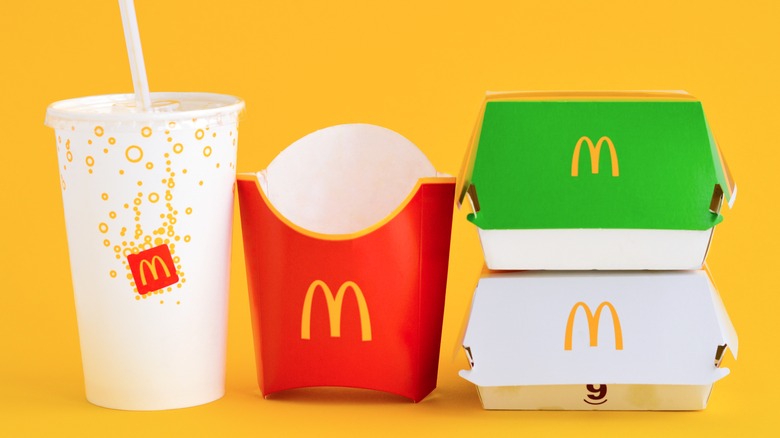McDonald's Franchisee Loses Court Battle With German City Over Tax On Packaging
On May 24, 2023, a McDonald's franchisee lost an appeal against Tübingen, Germany in Federal Administrative Court in Leipzig, over tax legislation regarding disposable packaging and cutlery, Newsweek reported on May 26. The law imposes a tax of approximately $.50 on disposable packaging and $.20 on disposable cutlery. Even paper packaging is subject to the tax, according to the BBC. Quoting the German language outlet, Der Spiegel, Newsweek says the increased cost to customers comes out to about $1.61 per meal.
Back in 2021, Susanne Heppert, a McDonald's franchisee with a location in Tübingen, sued the city in Mannheim Administrative Court to stop the then-proposed tax from taking effect. Heppert claimed the tax conflicted with German waste laws that require such matters to be legislated federally, thereby precluding municipal legislation. She also alleged the tax, which would raise her costs and thus harm her business, was "disproportionate" and "not expedient" for the purpose of protecting the environment.
Heppert had the support of McDonald's, according to Corpwatch. The company has 1,500 restaurants across Germany, all of which stand to be affected if the passage of Tübingen's tax represents a precedent for other German municipalities. The tax legislation passed, nevertheless, and has been in effect in Tübingen since January 2022. Later that month, Heppert sued Tübingen once again, hoping to have the tax declared invalid.
McDonald's won at the trial level, so this is a painful reversal
In March 2022, the Mannheim Administrative Court ruled in favor of McDonald's, according to Newsweek. This was despite the fact that within the first few weeks of the packaging tax's imposition, Tübingen's waste volume had declined by 15%, according to the BBC. A McDonald's spokesperson said the issue was not that the chain opposes environmental sustainability, but rather, that it thinks eliminating disposable packaging through local tax measures is not workable, as the BBC reported.
Tübingen's mayor since 2007, Boris Palmer, who is known for having significantly "greened" the city with his pro-environmental policies, took the stance that a municipality should be able to legislate on behalf of the environment. "I can't believe why an international company can't switch to reusables if every small business can do that," he said, per BBC. After McDonald's victory, Palmer appealed the case on behalf of the city. The Federal Administrative Court in Leipzig heard the appeal and ruled in favor of the city.
German Environmental Aid, a not-for-profit organization that lobbies on behalf of environmental protection, said it viewed a victory by the city against McDonald's as significant in the "war on the flood of waste." The organization's federal manager, Barbara Metz, was apparently elated by the ruling, tweeting the next day in German words that translate to the effect of, "This is trend-setting! All cities must now follow the example of Tübingen!"

